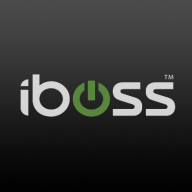


CloudLock and Forcepoint CASB compete in the cloud access security sector, offering robust data protection solutions. Forcepoint CASB has a competitive edge due to its more comprehensive feature suite, which some may find worth the investment.
Features: CloudLock offers valuable user behavior analytics, seamless cloud service integration, and protection for sensitive data. Forcepoint CASB stands out with advanced threat protection, granular access controls, and real-time control and monitoring features.
Room for Improvement: CloudLock could enhance threat detection capabilities, expand integration with other cloud services, and improve user interface design. Forcepoint CASB may benefit from simplifying its deployment process, enhancing the user experience, and further refining its threat analysis features.
Ease of Deployment and Customer Service: CloudLock is praised for straightforward deployment and responsive customer support. Forcepoint CASB offers a complex yet flexible deployment model with highly dedicated customer service, making it suitable for unique security needs.
Pricing and ROI: CloudLock's competitive pricing provides favorable ROI, appealing to budget-conscious organizations. Forcepoint CASB, with higher initial setup costs, offers long-term ROI through extensive features and enhanced security, justifying the investment for comprehensive security needs.
| Product | Market Share (%) |
|---|---|
| iboss | 2.5% |
| Forcepoint CASB | 1.5% |
| CloudLock | 0.7% |
| Other | 95.3% |

| Company Size | Count |
|---|---|
| Small Business | 6 |
| Midsize Enterprise | 6 |
| Large Enterprise | 5 |
| Company Size | Count |
|---|---|
| Small Business | 6 |
| Midsize Enterprise | 2 |
| Large Enterprise | 3 |
Iboss offers a comprehensive cloud-based security platform valued for its scalability and autonomous features, ensuring robust security with easy deployment and management capabilities.
Renowned for its robust security architecture, Iboss integrates seamlessly within diverse networks, delivering efficient granular filtering and advanced content categorization. Its single pane of glass console provides ease of management, allowing rapid scalability suitable for rapidly deploying environments. Operates in BYOD setups due to inline filtering without device installation. Integration with cloud-based applications enhances user control, and features like SASE, SSL inspection, and ChatGPT risk protection stand as highlights. Despite its strengths, users have pointed out areas for enhancement like direct navigation in reports, SSL decryption, and better cloud integration while having room to improve data loss prevention.
What are the most important features of Iboss?The usage of Iboss spans educational institutions, specifically K-12, to enforce internet policies, protect data, and support remote work environments. It provides web filtering and security frameworks to ensure safe browsing. Its platform-as-a-service model offers flexibility for both cloud-based and on-premises requirements, integrating seamlessly to deliver enhanced security features suitable for various deployment needs including zero trust, CASB, and network security for work-from-home setups.
CloudLock is a cloud security platform that provides organizations with visibility, data security, and compliance solutions for cloud-based applications and services. It focuses on securing data in popular cloud platforms, such as Google Workspace (formerly G Suite) and Salesforce.
CloudLock Benefits:
CloudLock Features:
CloudLock helps organizations enforce data loss prevention policies in the cloud. It monitors and controls the sharing, storage, and usage of sensitive data within cloud applications, preventing unauthorized access and data leakage.
The platform incorporates threat intelligence capabilities to detect and respond to cloud-based threats. It leverages machine learning algorithms and behavioral analytics to identify suspicious activities, malware, account compromises, and other security risks.
CloudLock enables organizations to enforce granular access controls for cloud applications. It allows administrators to manage user permissions, apply multi-factor authentication (MFA), and monitor user behavior to detect anomalies and potential insider threats.
CloudLock assists organizations in meeting compliance requirements by monitoring cloud applications for data privacy regulations and industry standards. It provides detailed reporting and auditing functionalities to demonstrate adherence to regulatory frameworks.
The platform helps organizations discover and gain visibility into unauthorized or risky cloud applications used within their network. It allows IT teams to assess risks, enforce policies, and take appropriate actions to manage and control cloud usage effectively.
Forcepoint CASB (Cloud Access Security Broker) is a security solution which is designed to secure and monitor the use of cloud services within an organization. It helps organizations gain visibility and control over the cloud applications and services being used by their employees. Forcepoint CASB integrates with cloud service providers' APIs and employs various techniques such as traffic analysis, proxying, and API-based controls to provide security and visibility into cloud application usage. It can be deployed as a standalone solution or integrated with other security technologies within an organization's existing infrastructure.
Forcepoint CASB Features:
Forcepoint CASB Benefits:
Reviews from Real Users
Edwin Eze Osiago, Regional Solutions Manager (Sub-Sahara Africa) at InfodataReliable, says that Forcepoint CASB is "Easy to set up and offers good visibility".
PeerSpot user, Professional Services Coordinator at a tech vendor, writes that Forcepoint CASB "Needs better backend code, requires stronger technical support, and the initial setup should be easier" and also adds that "The most valuable aspect for us is the fact that the product seamlessly integrates with the Forcepoint DLP".
Mahendra Bedre, Lead at Infrastructure Solutions ALM, says that Forcepoint CASB's "Macro integration and IDs for credentials are great features; It is easy to use with a good layout".
We monitor all Cloud Access Security Brokers (CASB) reviews to prevent fraudulent reviews and keep review quality high. We do not post reviews by company employees or direct competitors. We validate each review for authenticity via cross-reference with LinkedIn, and personal follow-up with the reviewer when necessary.